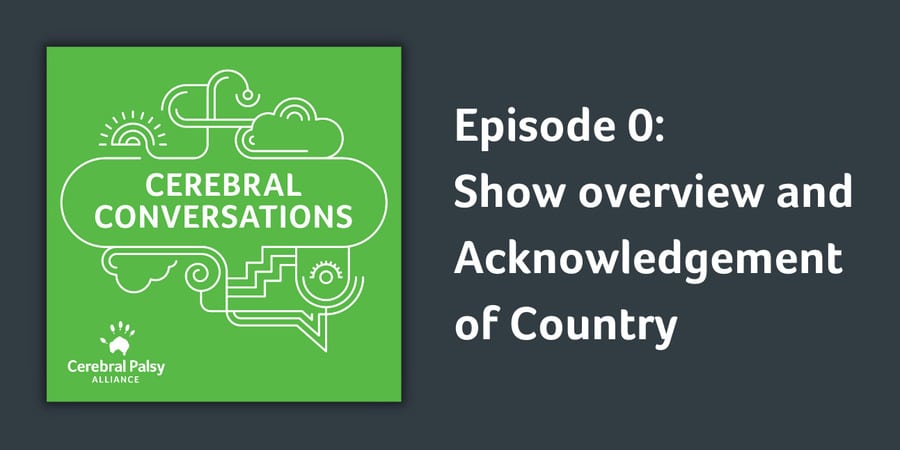
Listen to Episode 0 now, or read the transcript below.
We’d like to begin by acknowledging the traditional owners of the land on which we’re recording in Australia. We’d also like to acknowledge the traditional custodians of the lands on which you’re listening to us. And we’d like to pay our respects to elders past and present.
Hello, I’m Andy McLean, and I’m Ben McAlary.
Together, we’re hosting a brand-new podcast series called Cerebral Conversations.
And so, Andy, tell us, what’s that going to be all about?
Well, we think the time’s right for a big disability moment. We’ve seen movements like MeToo and Black Lives Matter have a massive impact in terms of changing expectations and attitudes and culture. And I guess what we’re really thinking is that disability is one of the last bastions of discrimination feels like we’re on the cusp of a huge movement for inclusion, advocacy and accessibility in this space.
And I’m just thinking recently the Paralympians have led that worldwide campaign to change attitudes towards disability with the #WeTheFifteen movement representing the one point two billion people around the world living with a disability.
Yeah. And then you’ve got companies like Nike and IKEA out there who are creating accessible products. So it’s really starting to feel like we’re gathering some momentum.
Feels like the perfect time, actually, for Cerebral Palsy Alliance to launch this brand-new podcast for this first season. We’ve asked some great minds to think differently about some of the biggest disability issues, like advocacy, inclusion, innovation, research, and so much more.
Yeah, and the podcast includes people like Tara Moss, Rae Johnston. We’ve got Naomi Simpson and Tracey Spicer, a whole bunch of disability advocates, and importantly, a whole bunch of people living with cerebral palsy themselves, tackling all kinds of topics. We look at ableism, disability, visibility in society, including movies and Disney princesses. Such amazing and powerful stories.
To find out what can happen when great minds think differently about redefining the impossible, listen to cerebral conversations.
But don’t take our word for it, here are just some of the voices you’ll hear:
I met cerebral palsy when I was four years old. Her name was Luisa and she was my best friend.
I really do believe that we are missing out when we’re not harnessing the creativity, the problem-solving skills, the ingenuity of people with disability.
The visibility of disabled people in relationships or disabled people being parents or that kind of thing like that sort of visibility is very helpful for me in kind of combating against my insecurities around whether I can have that, whether that’s like in the future for me. I think that there is still shame around disability.
I think there’s that ableism is a major factor, and that’s mostly informed by myth. And, you know, just so a lack of understanding, just because we have a disability doesn’t mean we can’t do everything that everyone else can do.
We still have the same hopes, dreams, goals as everyone knows.
Don’t limit yourself because you think, you know, you can’t do something because of your disability. I did that for many years, and I’ve just pushed my way through that and thought, no, I’m not going to let that stop me anymore.
I don’t think the doctors knew that because they knew what was happening. But we never saw that before, that you’re on the ed end of end of life. And next of all, it’s OK. She’s doing what we were told couldn’t be done in Australia.
We can do ethical safe as can be, best research on stem cells and other therapies that parents are crying out for.
It seems to me when society focuses its attention on something, it wants changed, things move fairly quickly and governments listen. Is there still, to a degree are discriminatory and bigoted attitude towards people with a disability?
Life is like eating an ice cream. It’s often difficult, sometimes messy, but always enjoyable if you can find the sweetness in it.
Cerebral Conversations is coming soon.
So tell your friends and make sure you subscribe on Apple, Spotify or wherever you get your podcast from.